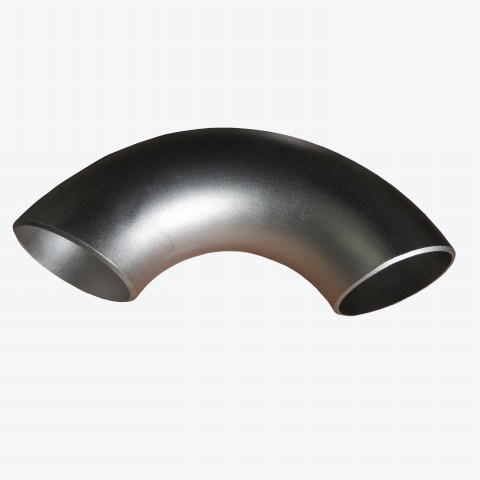Titanium Alloys for Enhanced Seawater Desalination and Shipbuilding Applications
Titanium Alloys in Seawater Desalination:
-
Tubes (ASTM B861): Titanium tubes are extensively used in seawater desalination plants for their exceptional resistance to corrosion. They are ideal for intake systems, where water is drawn from the ocean, and for distributing processed water, thanks to their immunity to bio-fouling and low maintenance requirements.
-
Fittings (ASTM B363): Titanium fittings are crucial for maintaining the integrity of desalination systems. Their compatibility with various seawater conditions and resistance to erosion make them a reliable choice for connecting pipes and managing fluid flow without the risk of leaks or corrosion.
-
Flanges (ASTM B381): Flanges are vital for secure connections in high-pressure environments typical of desalination processes. Titanium flanges provide the necessary strength and are less prone to crevice corrosion, ensuring longevity and reducing the need for replacement.
-
Tubes (ASTM B861 Grade 2): In naval ship applications, titanium tubes are favored for seawater piping systems due to their improved corrosion and erosion resistance. They are particularly used in amphibious transport ships, where they offer lifecycle cost savings over traditional materials like Cu-Ni alloys.
-
Fittings and Valves: Titanium fittings are used in conjunction with titanium tubes to prevent galvanic corrosion. Electrical isolation techniques are employed to ensure the system's reliability, although challenges have been noted in maintaining this isolation over time.
-
Flanges: Titanium flanges are used in shipbuilding for their high resistance to stress corrosion cracking. They are often paired with other materials like bronze valves, with insulation sleeves used to prevent galvanic reactions.
- Grade 2: Known for its ductility and excellent crevice corrosion resistance in seawater up to 82°C (180°F), making it ideal for desalination applications where temperatures can vary significantly.
- Grade 5: Offers higher strength than Grade 2 with slightly less corrosion resistance but is still a general-purpose material suitable for various components in shipbuilding and desalination.
- Grade 7 and Grade 12: These grades provide better crevice corrosion resistance, especially at higher temperatures, which is beneficial for components exposed to the thermal stresses of seawater desalination processes.
- Ultrasonic Testing (UT): To detect internal flaws within the material.
- Radiographic Testing (RT): For visualizing internal structures using X-rays or gamma rays.
- Penetrant Testing (PT): To reveal surface defects by applying a dye that penetrates cracks or pores.
- Positive Material Identification (PMI): To verify the chemical composition of the alloy and ensure it matches the specified grade.
Latest News
Contact Us

Name: Mr. Ren
Tel: +86-18292471213
E-mail: info(at)intemetal.com
Add: Middle Section Baotai Road, Weibin District, 721013, Baoji, Shaanxi Province, China








